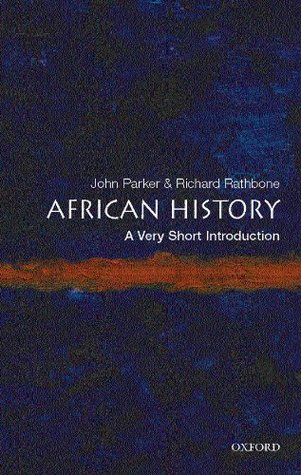More on this book
Kindle Notes & Highlights
by
John Parker
Read between
November 27, 2022 - February 4, 2023
stratigraphy
(the recording of the ‘layers of time’ revealed by the excavation of a settlement site),
archaeology in Africa faces huge technical and logistical constraints.
archaeology has been crucial to the study of Africa’s art history.
art historians examine forms and images.
Although sculpture from West Africa began to arrive in Europe as early as the 1470s, it was only with colonial conquest that an awareness of ‘African art’ developed in the West.
eclecticism
How does the history of Africa fit into that of the rest of the world?
Has the course of the African past been determined mainly by forces internal to the continent itself, or by those emanating from beyond its shores?
To what extent have African peoples been able to shape th...
This highlight has been truncated due to consecutive passage length restrictions.
Africa’s interconnectedness
How suited is academic
history, with its rules of evidence and its aspirations to ‘universal truths’, to represent the African past on its own terms and according to its own logic?
C. A. Bayly’s book The Birth of the Modern World (2004)
sets out to challenge the established Eurocentric narrative of the emergence of ‘modernity’ by relocating the process from the West to a broader, interconnected world (once again, we can see how contemporary issues – ‘globalization’ – spur historians to reconsider the past).
Jean-François Bayart,
‘extraversion’,
‘mobilizing resources from their (possibly unequal) relationship with the external environment’.
four major themes in the continent’s history:
the impact of Islam and Christianity,
the slave...
This highlight has been truncated due to consecutive passage length restrictions.
the African d...
This highlight has been truncated due to consecutive passage length restrictions.
the tumultuous changes of the 1...
This highlight has been truncated due to consecutive passage length restrictions.
Beatriz preached a radical reinterpretation of Christian history,
Catholicism in Kongo dates back to 1491,
important questions
Beatriz Kimpa Vita.
Jean Comaroff and John Comaroff argue that evangelization represented nothing less than a ‘colonization of the consciousness’.
J. D. Y. Peel,
sees Christian conversion not as a colonization of the consciousness but as a process of active appropriation.
The Comaroffs relied heavily on the writings of European missionaries, while Peel made great use of the diaries of Yoruba evangelists.
Joseph Miller
the slave trade in Angola,
became a ‘way of...
This highlight has been truncated due to consecutive passage length restrictions.
Amistad
the tendency has been to portray Africa and Africans simply as passive victims.
‘extraversion’:
powerful African states and individuals forging economic links with outside forces by exploiting weaker peoples around them.
An Interesting Narrative. Biography of Mahommah G. Baquaqua, A Native of Zoogoo, in the Interior of Africa
one of a number of narratives by or about former slaves
the only known narrative of an African enslaved in Brazil,
Samuel Moore,
the interconnections between African history and the history of the African diaspora.
Where does one end and the other begin? How ‘African’ is the diaspora?
Melville Herskovits,
argued for the continuity of African culture amongst the black populations of the Americas.
‘place superseded race’.
anglophone
Pier Larson
the process of enslavement involved not just the removal of victims from the shores of Africa but also widespread displacement, trauma, and cultural change within the continent.


